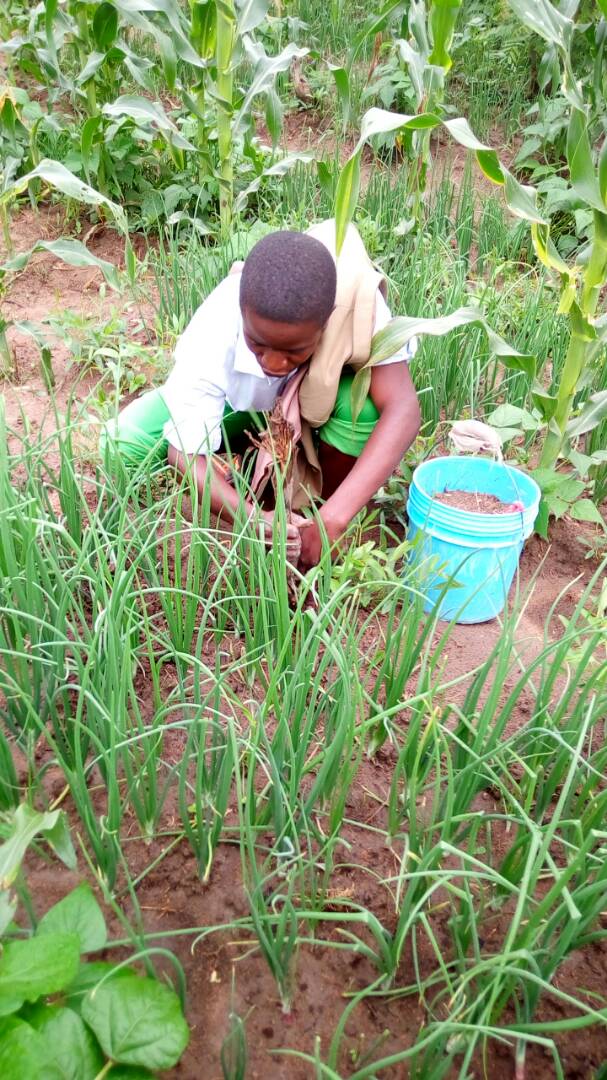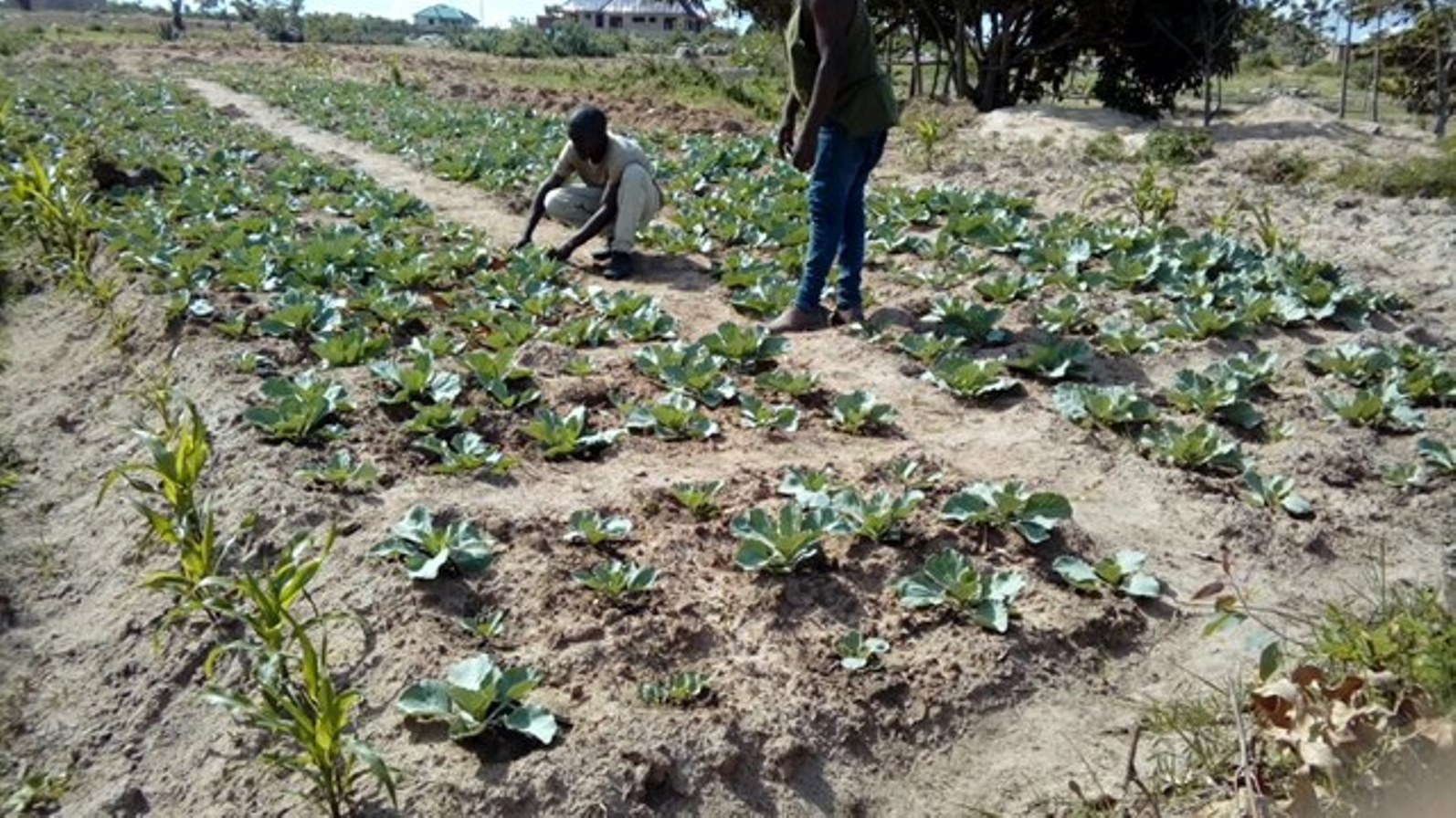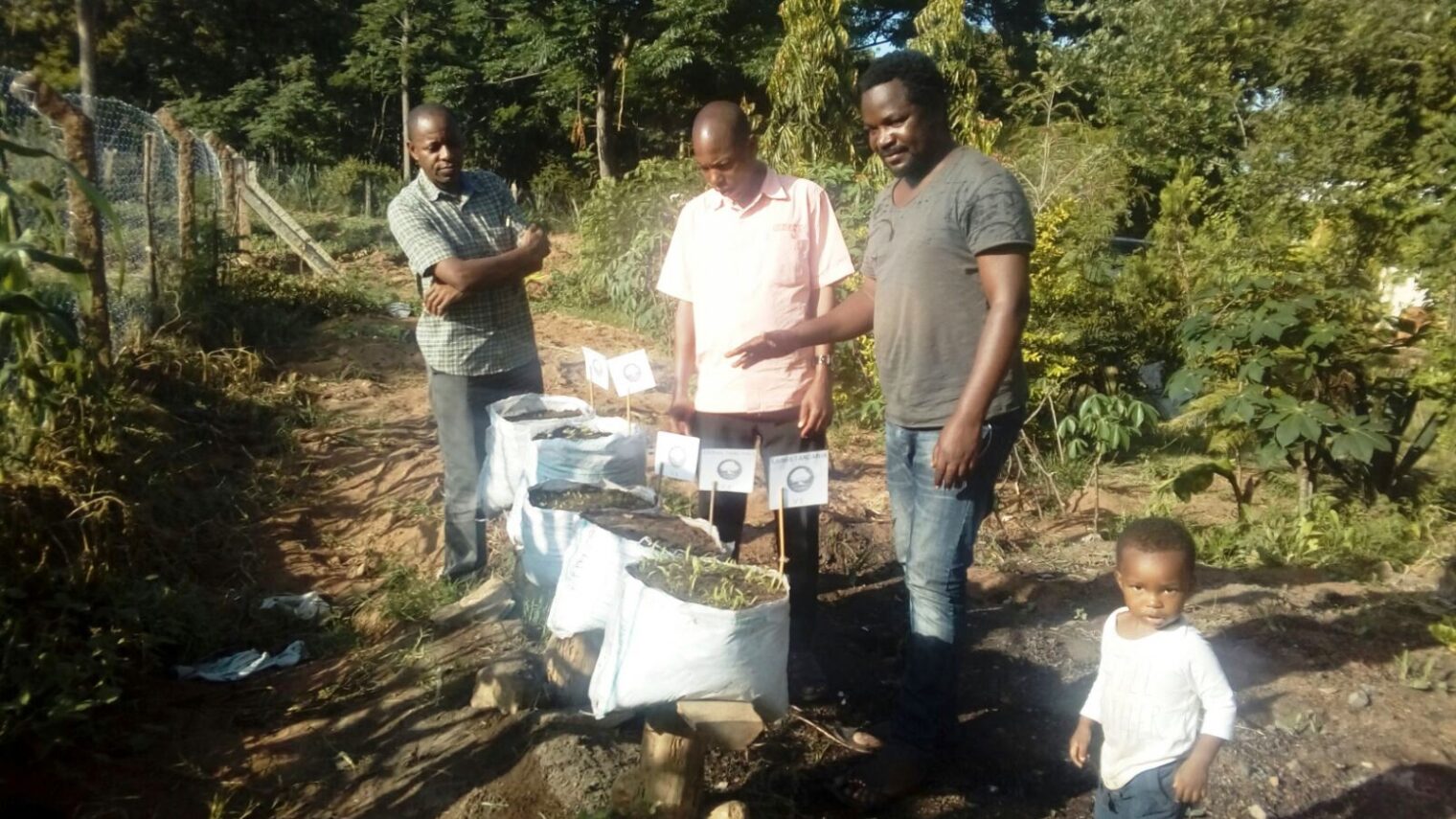When Tanzanian community developer and environmentalist Fabian Bulugu began a master’s degree program at the Hebrew University of Jerusalem in 2017, he wanted to spend his spare time learning how Israelis work their magic in the desert soil.
“I was very interested in agriculture because Israelis came to Tanzania in the 1960s to help us grow crops at Lake Victoria with Israeli irrigation technologies,” he explains to ISRAEL21c. “I visited those sites and the farmers are still thankful to the Israeli people to this day.”
He heard about a hydroponic gardening project at the Jerusalem Botanical Gardens run by Kaima, an organization that uses organic farming to give Israeli high-school dropouts an income and a fresh start on life.
“It amazed me to see how engaged the youth were,” Bulugu tells ISRAEL21c.
He began volunteering there once a week and then at Kaima Beit Zayit, the flagship farm of the NGO, which now encompasses four “sister” farms in other Israeli locales. “With my interest in climate change and in youth empowerment I felt I needed to do something to help youth,” he said.
Inspired by the successful work of Kaima founder Yoni Yefet-Reich, Bulugu is now piloting a Kaima sister farm in his native country in coordination with local and international NGOs.
“Fabian came as a volunteer for almost a year once or twice a week, and at the end of the year he came to me and said, ‘Now I know what I want to do. I want to take this to Tanzania,’” Yefet-Reich recalls.
A gift from Israel
Bulugu tweaked the model to fit the situation in the eastern African country of 55.5 million.
“In Tanzania we have only mandatory schooling up to age 15 and so we don’t really have dropouts,” he explains.
“We have different problems, especially with youth unemployment after the age of 15 after primary school ends. They have no skills to prepare them for a profession. So I wanted to bring a gift from Israel to empower these youth.”
Tanzania is blessed with lakes, rivers and arable land perfect for agriculture. In addition to produce such as tomatoes, Bulugu plans for his Kaima Village to raise maize, rice and sunflowers.
“After the youth learn the basics on our farm for about a year, we want to set them up with microfinancing and guidance so they can establish their own farms and other young adults can learn from them. It’s a cascading model.”

He applied for NGO status in Tanzania, secured a plot of land and necessary certifications, and recruited four additional founding members to start getting the farm set up and known in the community.
Bulugu then returned to Israel early this year to complete his degree in Glocal Community Development Studies and to complete onsite training at Kaima Beit Zayit, where he excitedly shared pictures of the farm plot with the staff and young farmers.
“Fabian has a very good connection with people; all the youth here love him,” Yefet-Reich tells ISRAEL21c.“He has lots of experience with NGOs in Tanzania so I knew he had the ability to do this. When he came back here to finish his degree we started working hard to make it happen.”
Yefet-Reich accompanied Bulugu to meetings at the Jewish Agency, Tevel b’Tzedek and other potential partners to gauge interest in helping get the Kaima Tanzania youth empowerment program off the ground.
“It’s something we always wished would happen — to see our model duplicated all over the world. We’re so happy about it,” says Yefet-Reich.
“Our own team hopes to send Kaima Beit Zayit alumni and our newly formed Kaima Center for Economic Development and Educational Training staff to Tanzania, possibly in the summer or fall, to assess the model’s implementation.”

As part of his master’s program, Bulugu also interned with the Israeli NGO Fair Planet. “They do wonderful work training farmers and improving agricultural practices in Ethiopia. Israeli people are hard workers,” he says.
Upon his return to Tanzania in April, Bulugu began formal recruiting of young employees. He also drew up long-term plans.
“I want this to be something the government will want to be involved in, so we want to have data to show the government that it’s worth funding. We will look at data such as the cost of production per tomato, for instance, and also data on outcomes for participants after a few years,” says Bulugu.
Looking farther into the future, he hopes Kaima Tanzania will expand to include a fish farm.
“Fish is very expensive in Tanzania. If we set up a site on our farm, they can use the water for irrigation and to raise fish as an added value. Everything is possible,” Bulugu says.
For more information, click here.

















